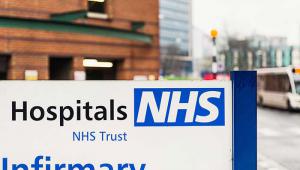As part of the Spending Review, the government has confirmed it would increase health spending in 2016/17 as part of the £8bn additional spending pledged by 2020. Chancellor George Osborne said £6bn would be delivered by the end of 2016/17 and £4.8 billion capital funding every year for the next 5 years.
When the funding is added to the £2bn provided in last year’s Autumn Statement, ministers said the NHS would have been supported by an extra £10bn above inflation.
The additional funding will allow the NHS to offer 800,000 more operations and treatments, 2 million more diagnostic tests, 5.5 million more outpatient appointments and spend up to £2bn more on new drugs, according to the Department of Health. It is also intended to deliver improvements to weekend and evening provision, with seven-day coverage in all key hospital services by 2020.
The funding increase will also lead to additonal moeny being made available for vanguard projects to develop new models of care and £300m more spent on cancer diagnostics every year. Selling surplus property will generate a further £2bn.
Delivering his statement, Chancellor George Osborne told MPs that the first priority of this government is the first priority of the British peoplem which was the National Health Service.
"We made a commitment to a £10bn real increase in the health service budget," he said. "And we fully deliver that today, with the first £6bn delivered up-front next year. This fully funds the Five Year Forward View that the NHS itself put forward as the plan for its future.
This means that the NHS budget will rise from £101bn today to £120bn by 2020/21, Osborne said, a half a trillion pound commitment to the NHS over the parliament and the largest investment in the health service since its creation, Osborne said.
NHS England chief executive Simon Stevens said this was “a clear and highly welcome acceptance of our argument for frontloaded NHS investment”.
He added: “It will help stabilise current pressures on hospitals, GPs, and mental health services, and kick start the NHS Five Year Forward View’s fundamental redesign of care.
“In the context of constraints on overall public spending, our case for the NHS has been heard and actively supported.”
Responding to the announcement, NHS Confederation chief executive Rob Webster said the health service had made “a strong and consistent case” for funding to be brought forward.
“The commitment to front-load funding across the next two years gives the NHS a fighting chance to transform the way that care is delivered to patients," he said. "We can’t afford to do more of the same and this money must now be used to change the way care is delivered across the service - in hospitals, primary care, mental health and community services.
“The Treasury has listened to the case we have been making on behalf of our members and at least half of our conditions have been met. Additional mental health funding is promising and we now need to see it invested at the frontline where patients need it most.
However, the health service should be under no illusion of the challenges ahead, he added. "The Chancellor has agreed today to protect NHS England’s budget, rather than the total budget for the Department of Health. This has a big impact on vital resources needed to deliver the Five Year Forward View, including on public health and clinical training. The cut to public health in particular is hard to swallow considering the importance of investing now to keep people healthy and avoid building trouble for the future.
Healthcare Financial Management Association director of policy Paul Briddock said the government has listened to the calls of those on the ground for the pledged money to be front loaded, which will support NHS organisations. "When other sectors and services are facing cuts, the NHS will be grateful for this additional funding, which will help to meet the additional demands being placed on the NHS," he added.




















